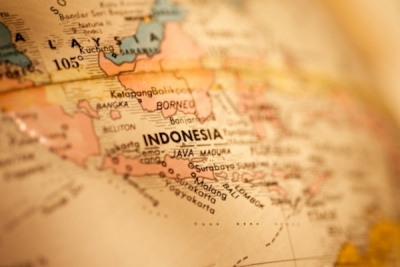Indonesia revives West Java port plan

The stop-and-start idea to build a port on the north coast of Java to relieve pressure on the main Tanjung Priok port looks like it has regained some impetus, with local reports saying the Indonesian government will soon revive development plans with Japanese financing.
The original plan to build a port at Cilamaya in Karawang, West Java was conceived with Japanese funding but the project was canned because of conflicts with Pertamina's facilities due to its proposed location.
National Development Planning Board (Bappenas) director for transportation, Bambang Prihartono, said he was slated to meet a representative from the Japan International Cooperation Agency (JICA) next week about possible investment from Japan.
He said the new seaport project, in Subang about 50km east of Karawang, would be developed in a public-private partnership (PPP) scheme, with the government relying on loans for the project, in contrast to the previous plan which was based on private investment.
“The amount is still under discussion. It could be complimented by the state budget. We need to know how much they are willing to lend and our capacity to borrow,” Bambang said.
He said the private sector will still be involved in the port project as it would still be open for tenders, as reported previously but this has raised fears that the relationship with Tokyo would be strained since the Japanese government previously thought it would secure the now cancelled project and JICA had conducted a feasibility study that cost between $2.5m and $3m.
Bambang said the government is making progress on the project. “We have just been looking for the funds and the feasibility study and the detailed engineering designs will follow afterwards,” he said. However Bambang noted that the tendering process would likely take awhile as the government needed to put the project in its soon-to-be launched Blue Book, which lists the country’s public-private partnership projects. The government previously aimed for the project to be fully funded by the private sector to reduce state expenditures.
The planned port, which needs an initial investment of more than $1.2bn for the first phase of construction, will have a capacity of 3.75m teu a year, or more than two-thirds the capacity of Indonesia’s largest port, Tanjung Priok in North Jakarta.
Bambang said the government aimed to accelerate the issuance of permits for the seaport project, such as the environmental impact analysis, so construction can start during Jokowi’s administration. “The construction will take awhile and may finish after 2019, but the construction should start soon,” he said.
HEADLINES
- Do shipping markets want Biden or Trump for the win?
- All 18 crew safe after fire on Japanese-owned tanker off Singapore
- Singapore launching $44m co-investment initiative for maritime tech start-ups
- Cosco debuts Global Shipping Industry Chain Cooperation Initiative
- US warns of more shipping sanctions
- China continues seaport consolidation as Dalian offer goes unconditional